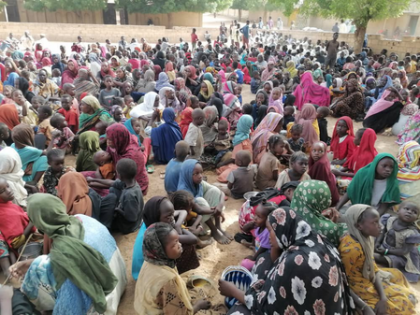Sudan's army chief agrees to one-week humanitarian truce in El Fasher
By IANS | Updated: June 27, 2025 20:03 IST2025-06-27T19:57:08+5:302025-06-27T20:03:59+5:30
Khartoum, June 27 Chairman of Sudan's Transitional Sovereignty Council, Abdel Fattah Al-Burhan, has agreed to a one-week humanitarian ...

Sudan's army chief agrees to one-week humanitarian truce in El Fasher
Khartoum, June 27 Chairman of Sudan's Transitional Sovereignty Council, Abdel Fattah Al-Burhan, has agreed to a one-week humanitarian truce in El Fasher, the capital of North Darfur State in western Sudan, the council announced on Friday.
Al-Burhan, also the head of Sudanese Armed Forces (SAF), agreed to a request for a ceasefire from United Nations Secretary-General Antonio Guterres during a phone call earlier on Friday, the Sovereignty Council said in a statement.
"The UN Secretary-General called for a one-week humanitarian truce in El Fasher to support relief efforts and ensure aid reaches thousands of civilians trapped in the city, a proposal that the head of the Sovereignty Council accepted," the statement said.
Al-Burhan also stressed the importance of implementing UN Security Council resolutions that demand an end to the Rapid Support Forces' (RSF) siege on El Fasher, Xinhua news agency reported. The RSF has been imposing a blockage on El Fasher since May 2024, including daily shelling and intense urban battles involving both the RSF and the SAF. The blockage has led to critical shortages of essential goods and medical supplies.
El Fasher serves as a major administrative hub for the Darfur region, which comprises five states. It is the only state capital in Darfur that remains outside RSF control.
The city, which hosts three camps for displaced persons including Abu Shouk, Zamzam and Al-Salam, is home to around 1.5 million people, with 800,000 internally displaced, according to UN figures.
Sudan has been engulfed in a brutal conflict between the SAF and the RSF since April 2023. The war has killed tens of thousands and forced millions to flee their homes, both within Sudan and across its borders.
Disclaimer: This post has been auto-published from an agency feed without any modifications to the text and has not been reviewed by an editor
Open in app